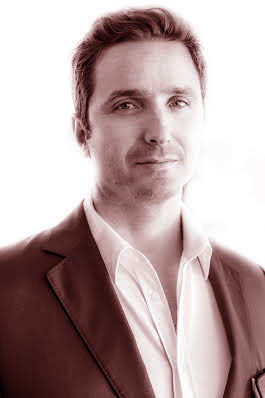 The so-called Public Services (Water Supply, Waste Water and Urban Waste) are divided into two types of exploration and management entities: ''high'' management and ''low'' management.
The so-called Public Services (Water Supply, Waste Water and Urban Waste) are divided into two types of exploration and management entities: ''high'' management and ''low'' management.
''Upstream'' management is characterized by entities operating in the collection, treatment and distribution, from dams (in the case of water) and ecopoints (in the case of waste) and in the reception of Waste Water (sanitation) and landfills ( UK).
Examples of this type of entity are Águas do Algarve SA and Algar SA. Inefficiencies and management errors are transferred through the tariff to ''lower'' entities.
The ''low'' management is characterized by entities operating at the level of municipal infrastructure, from receipt of delivery by the ''high'' management entity, to the final consumer. Fagar is an example of this type of entities (Faro) and EMRP (Portimão).
The ''low'' management in the 16 Algarve Municipalities is being explored by 19 entities. Of these entities, 11 are Municipalities and 8 municipal companies under concession/delegation.
At this time, and according to the analysis made to the various Reports & Accounts of the management entity Águas do Algarve SA, the financial situation is weak (despite some “understandings” touting its excellent economic performance, ignoring the huge lack of liquidity offset by bank loans, shareholder loans from Águas de Portugal, as well as the non-compliance with payment deadlines agreed with most suppliers and contractors), mainly due to the non-existent consequences for defaulting customers/Municipalities.
Their debt grew by 52 million euros, or 432%, in five years (2007-2011), and, in addition to its worrying age, it represents a value higher than the company's turnover.
Additionally, Águas do Algarve SA maintained and continues to maintain an investment plan inappropriate to the Algarve reality which, due to political pressure, made the total indebtedness to be eight (8) times the company's EBITDA (ie grew by 90 million euros from 2007 to 2011). Even so, despite not being able to charge the Municipalities, it proceeded with the Investment Plan.
The situations described aggravated, in 2011, the ratios of Financial Autonomy (6%), General Liquidity (0,30), and the average period of receipts went from 110 days to 440 days in 2011.
Although some of these situations can be mitigated with the adhesion of the Municipalities to the PAEL, the sector will not present improvements because it will only transfer debt from the ''high'' entity to the ''low'' entities.
In addition to the above, there is a tariff deficit of around 16 million in 2012, which sooner or later, and why there are no free lunches, will be charged to final consumers (to be developed in a future article).
Even so, responsibility for the situation of Águas do Algarve is not only the responsibility of the management teams who have been there in the last 10 years, since it is an integrated sector, but also the Municipalities (except for Portimão, Loulé, Faro and Tavira) who, as shareholders and clients, have not been able to create a management model in ''low''.
It is necessary that this model guarantees a tariff coverage that is adequate for costs and investments and that it does not finance various activities (urban cleaning/garden cleaning/urban requalification), with the income generated by water and sanitation, and that it reduces large water losses in the infrastructures.
It is the Government's intention to privatize the Waste sector (Algar) and, in a first phase, verticalize the Water sector, giving it scale, with the pretext that only in this way will the much desired tariff harmonization in the national territory be possible, making the sector very attractive for potential investors.
In the case of the Algarve, it could mean a merger/extension of the intervention of Águas do Algarve to Baixo Alentejo, with the investments still to be made in the infrastructure of that region being reflected in the tariffs for the Algarve.
As a result, we may be talking about a 30% increase in the ''high'' tariff, to be transferred to the Algarve's final consumers.
The resolution of these situations requires the application of the legislation in force, the professionalization of management, definition of clear objectives in the concession contracts and their compliance (reduction of losses, self-consumption, etc...), accountability and real penalty of the debtor Municipalities and an increase in competition and benchmarking low''.
The only way to increase the efficiency and effectiveness of a sector, as well as control the prices charged, is through competition and comparison between service providers, instead of what is intended by the Government, which intends to create a kind of EDP in the sector.
In fact, the competition does not need to be done by private parties (theme for another article), as evidenced by the expansion of EMARP to the municipality of Lagoa. An excellent example of intercity.
Author Carlos Manso
Effective Member of the Order of Economists
Member of the Installation Committee of the Algarve Delegation of the Economists Association
Financial Director of Infralobo (Water and Waste company)
Author of blogdomanso.pt
Note: Article published under the protocol between the Sul Informação and the Algarve Delegation of the Order of Economists


















Comments